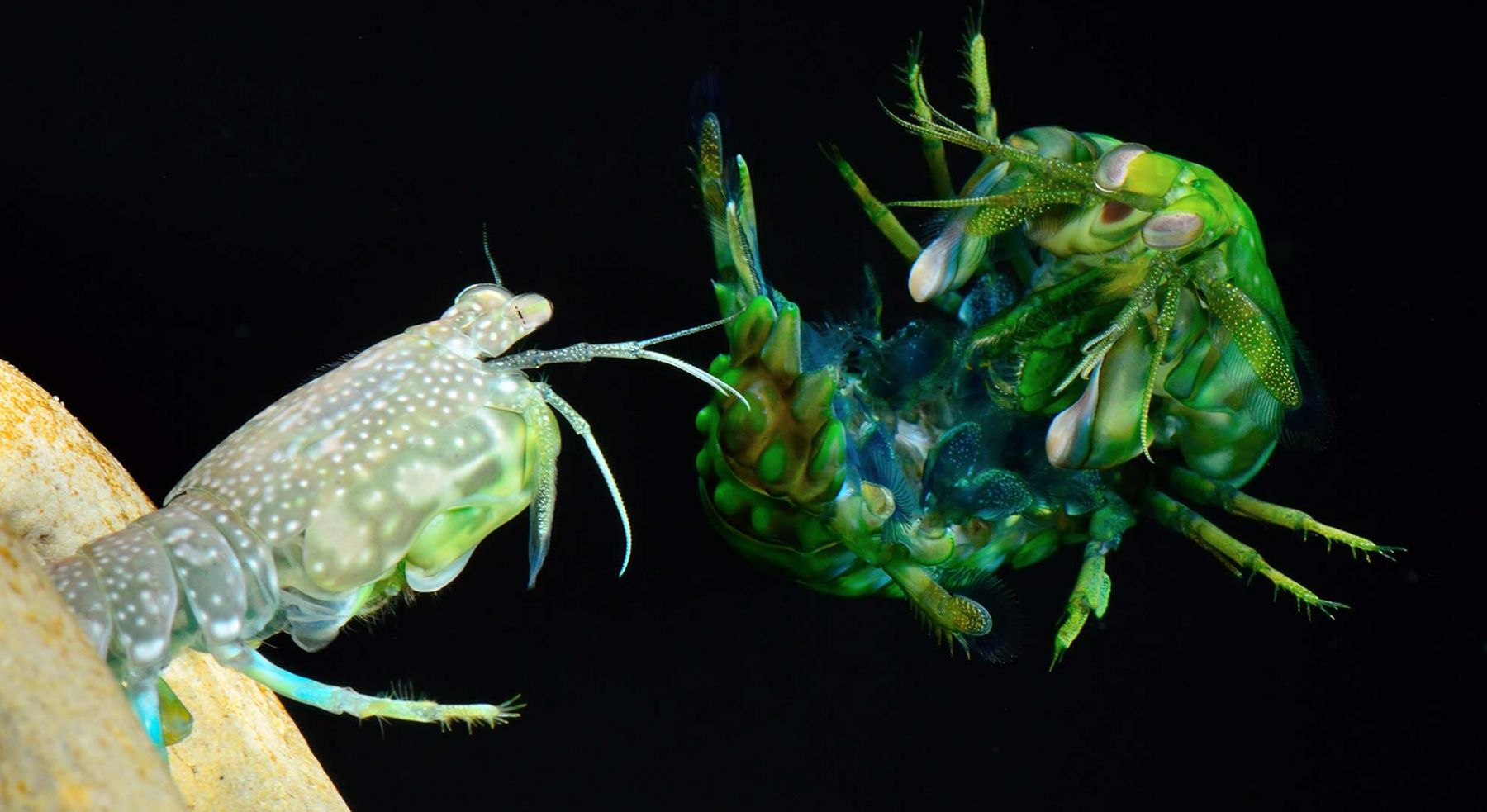Animals compete over crucial resources like access to territory or mates. While winning a contest grants access to those resources, contests can also be costly, causing injury or even death. A major goal of my research is to understand how animals assess fighting ability (their own and their competitor’s), the value of contested resources, and other factors, and how animals use the information they gather to safely resolve contests.
My research in this field has focused on the mantis shrimp Neogonodacylus bredini, which fights over access to protective burrows. During these contests, mantis shrimp present visual displays and strike each other with high-force strikes; these strikes are otherwise used to crack open hard-shelled prey and are some of the fastest movements animals produce. How do competing mantis shrimp use assessment to safely resolve their contests?
Discoveries
- Mantis shrimp ritualistically exchange strikes on each other’s armored tailplates to resolve conflicts while minimizing injury (Green & Patek, Biology Letters, 2015).
- This exchange of strikes, along with other behaviors, lets mantis shrimp assess their own fighting ability (which is related to body size) relative to that of their competitors. (Green & Patek, Proceedings of the Royal Society, B, 2018)
- Mantis shrimp also assess the value of the resource they fight over—an “intruder” shrimp without a burrow is most likely to defeat a “resident” shrimp inside the burrow when the burrow is just smaller than the preferred size for the intruder (Green & Harrison, Animal Behaviour, 2020).
Future Questions
- How does assessment manifest at the ecological level? Studies using field populations or mesocosms can manipulate the number and size of shrimp and the number and size of burrows, testing how aggression levels and contest outcomes change.
- Comparative studies of assessment behavior: Do mantis shrimp of other species, or in other ecological conditions, show different types of assessment?
- How are assessment behavior and weapon evolution linked?
